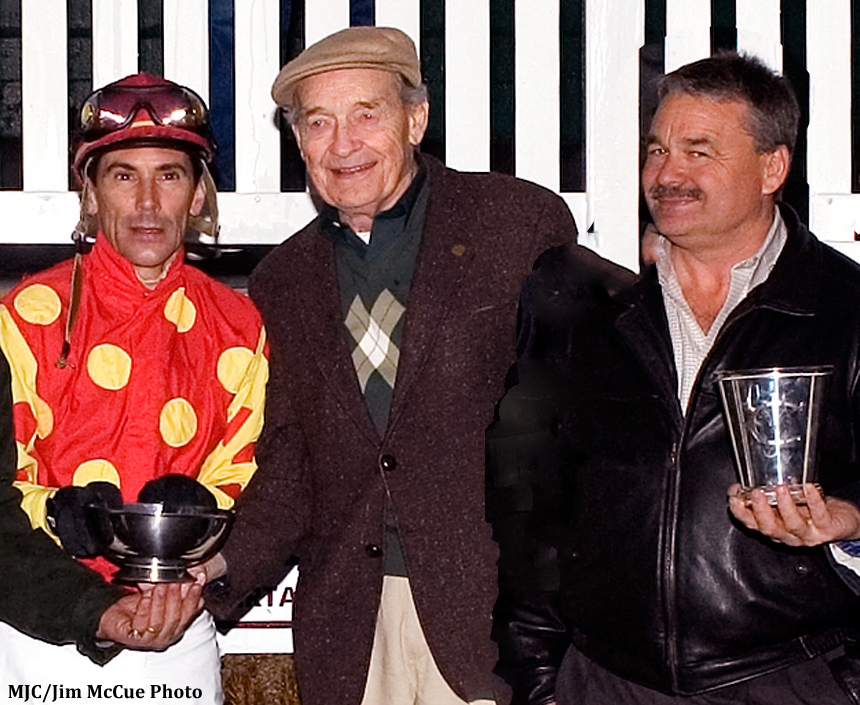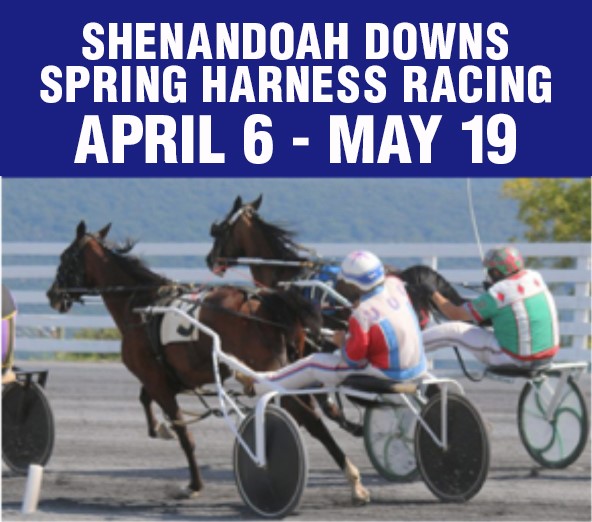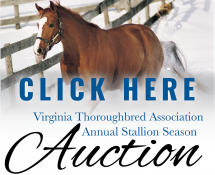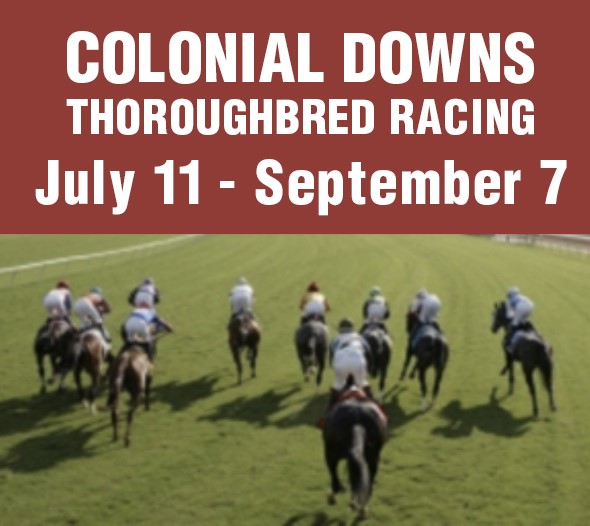Even if he didn’t have a starter on the card, trainer Ferris Allen wouldn’t dream of being anywhere else but Laurel Park on Saturday for its 11-race Commonwealth Day program.
The annual celebration of Virgina-bred/sired horses moved to the Maryland countryside in 2014 following the closing of Colonial Downs where the 64-year-old Allen, a native of Varnia, Va., dominated the standings on the way to becoming the state’s all-time leading trainer.
“I train for some Virginia people and I have two unraced Virginia-breds in my barn that won’t be ready, but I don’t have a single Virginia-bred that fits the day,” Allen said. “I have about 30 horses, which is about half the size of where we were when we were really cracking. We’re concentrating a little more on young horses than we were before.”
A licensed trainer for 42 years with more than 2,000 career wins, Allen has established himself as one of the most successful horsemen and popular people on a Maryland backstretch he has called home since 1979. Of the eight stakes worth $850,000 in purses that help comprise the Commonwealth Day program, one holds a special place in his heart.
The $60,000 Bert Allen for 3-year-olds and up at 1 1/16 miles on the grass is named for Allen’s late father, a longtime owner and breeder in Virginia who died Jan. 9, 2011 on his family’s 13-acre Warwick Stables farm at the age of 87.

Previously run as the John D. Marsh Stakes, the Bert Allen was renamed for the 2011 summer meet at Colonial Downs. As fate would have it, Ferris Allen was the first winner of his father’s race with a 3-year-old gelding named Deputy Fling.
“For the people of Virginia to have the understanding of what my dad meant to the spirit of Virginia racing, to name a race after him was really special,” Allen said. “I would have to say winning the inaugural running of the race would have to be certainly the emotional highlight of my career. What happened on that day was nothing short of incredible. It’s one of those stories about racing that almost never happens anymore.”
The winner’s circle photo, jammed with friends and family members on hand for the occasion, is prominently displayed on a wall in Allen’s Clarksville, Md. home. Overlooking the scene was the third floor dining room where Bert Allen sat at his reserved table nearly every racing day.
“There’s got to be 75 people in that picture and I can name everybody in it. They’re all close personal and family friends. It’s just full of people,” Allen said. “As we were standing in the winner’s circle, I looked up to the stands. Colonial is a compact little grandstand which seats about 5,000 people altogether. Everybody was on their feet and applauding. Between my dad and myself, we basically knew everybody that was there. I don’t know where else something like that happens. I don’t think it does, really.
“It was a pretty nice thing,” he added. “I’m not a particularly sentimental person, but something like that gets to you.”
Ferris Allen grew up with horses. His father ran an automotive business and tended to horses on their farm, and every spring on Preakness Day would host six races over a three-furlong track on the property for donkeys, ponies, quarter horses and thoroughbreds.
“My dad was a working-class guy that loved horses, and because he loved horses he came to love horse racing,” he said. “He was not a guy that had a lot of money or had the wherewithal to throw a lot at it, but he was so passionate about it that basically anybody that had anything to do with horses, unless they were a crummy person, became my dad’s best friend.”
Allen was galloping horses by age 11 and racing at 13, graduating from Varnia High School, where he would return to teach government and coach baseball after earning a degree from William & Mary, where he was a standout in the classroom and on the diamond. He took out his trainer’s license in 1974 and by 1977 he had gone from teaching students to horses on a full-time basis.
“Right after I got out of college I got my trainer’s license because we had some horses on the farm. It was your typical hobbyist farm operation where we had a few horses and when we could, we would take them to Charles Town to race them,” Allen said. “My last year of teaching school I had over 100 starters, so that gives you an idea of where my life was going. I decided I could go back to teaching if I wanted to, but it was a really good time in my life to try training horses. The rest is kind of history.”
Long based at Laurel’s Barn 26, Allen would go on to lead all Maryland trainers in victories in 1999 and ranked in the state’s top 10 for 16 consecutive years from 1995 to 2010 while topping the $1 million mark in purse earnings 15 straight years from 1997 to 2011. He picked up career victory No. 2,000 with From Jump Street on Dec. 18, 2011 at Gulfstream Park.
Allen’s lone graded stakes victory came with Passeggiata in the 1999 Barbara Fritchie (G2), but he is best known as the trainer of Miracle Wood, who was bred, owned and campaigned by his father. At the ages of 2 and 3, Miracle Wood would win or place in 13 stakes, including a fifth-place finish at odds of 20-1 in the 1986 Preakness Stakes (G1). He retired in 1992 with 15 wins and $498,090 in purse earnings from 117 starts, living out the rest of his days on the family’s farm, where he passed away in 2014 at the age of 31.
Like Allen’s father, Miracle Wood has his own stakes named for him, a one-mile test for 3-year-olds first run in 1995 and held during Laurel’s winter meet.
“He was very cantankerous. He was probably all in all the most difficult horse that I ever trained as far as his behavior and demeanor went,” Allen said. “He was the year of Broad Brush, and you can go through his form and see that Broad Brush was about a length and a half better than he was. We had a great rivalry with the Dickie Small barn and all going up with that. We went down for the Jim Beam and we ran 1-2 in that race. If they had gone some other direction we would have probably won that race. Broad Brush was a real national caliber horse and I would say we were a little more regional, and we had a chance of beating the best horses with him.”
Allen is a charter member of the Maryland Thoroughbred Horsemen’s Association, serving on the board of directors from 1986 to 2002 including a 12-year stint as vice president. In 1990, he was honored with the Outstanding Service to Maryland Horsemen Award.
He offers his career as a tribute to his father, and continues to mentor young horsemen who seek out his advice and the wisdom of his experience. Allen’s lone starter on Saturday comes with Chief Tarhe in the second race, a $27,000 maiden claiming event at 5 ½ furlongs on the main track.
Chief Tarhe was bred in Maryland at Hickory Ridge Farm, where Allen’s daughter, Jane Allen Blayman, leases from owner John McDaniel to run Warwick Equine Services, a full-service operation specializing in thoroughbreds and show horses that expanded to include the breeding aspect in 2011.
“The way my dad was, he just was a sponge for everything that had to do with horses,” Allen said. “When I was at his side growing up, whatever he learned he taught me or I learned it along with him. That was a really neat deal.”
New to the Paulick Report? Click here to sign up for our daily email newsletter to keep up on this and other stories happening in the Thoroughbred industry.
Copyright © 2016 Paulick Report.









